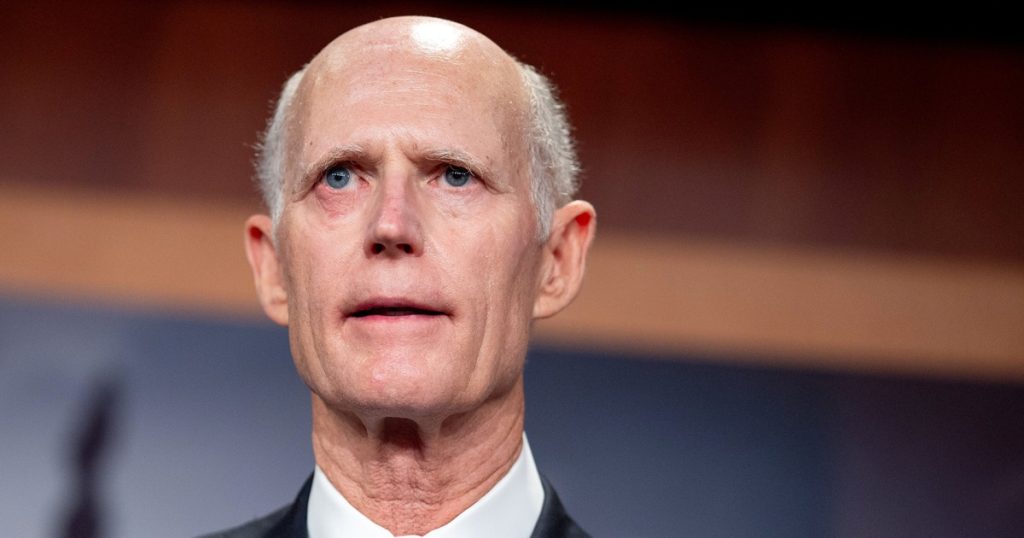Sen. Rick Scott of Florida has announced his intention to run for Senate Republican leader after Mitch McConnell leaves the post later this year. The Wall Street Journal initially reported on Scott’s plans, which he later shared publicly in a post on X. In a letter to colleagues obtained by NBC News, Scott expressed his belief that “now is a moment we need dramatic change.” Scott joins a competitive race for the position, which includes other contenders such as Senate Minority Whip John Thune and former whip Sen. John Cornyn. The vote for the next Senate Republican leader won’t take place until after the November election, so additional candidates could still enter the race.
Scott’s decision to run for Senate Republican leader comes as McConnell prepares to step down from his position after serving a record 18 years in the role. Scott, who has previously served as governor of Florida, is positioning himself as a candidate for change within the party. He aims to bring fresh perspective and leadership to the Senate Republican caucus during a critical time for the party. If elected as the next Senate Republican leader, Scott would play a key role in shaping the party’s agenda and strategy in the Senate.
The race for Senate Republican leader is shaping up to be competitive, with multiple candidates vying for the top position in the party. In addition to Scott, Thune, and Cornyn, other potential candidates could still enter the race before the vote takes place after the November election. The outcome of the leadership race will have significant implications for the future direction of the Republican Party in the Senate. As the party seeks to regroup and redefine its priorities following the 2020 election, the choice of a new leader will be closely watched by party members and observers alike.
Scott’s bid for Senate Republican leader reflects a broader trend within the Republican Party of seeking new leadership and fresh ideas. As the party grapples with internal divisions and challenges, there is a growing appetite among Republicans for change and a new direction. Scott’s candidacy represents a departure from the status quo and a willingness to break with tradition in order to move the party forward. His message of “dramatic change” resonates with many in the party who are looking for a new vision and approach to governance.
The contest for Senate Republican leader will likely be a closely watched and hotly contested race, with multiple candidates vying for the top spot. The outcome of the leadership vote will shape the direction of the party in the Senate and influence its agenda and priorities in the coming years. As the Republican Party seeks to navigate a changing political landscape and define its future, the choice of a new leader will be a critical decision. Scott’s candidacy represents a potential turning point for the party, as he seeks to bring new leadership and a fresh perspective to the role of Senate Republican leader.
In conclusion, Sen. Rick Scott’s decision to run for Senate Republican leader marks a significant development in the party’s leadership succession process. His bid for the position reflects a desire for change and a new direction within the Republican Party. As the race for Senate Republican leader heats up, Scott will face competition from other contenders who are also vying for the top spot. The outcome of the leadership vote will have far-reaching implications for the party’s future direction and strategy in the Senate. Ultimately, the choice of the next Senate Republican leader will play a crucial role in shaping the party’s identity and priorities in the years to come.


